
Christmas Fair
This year, the Christmas Fair will be held on Saturday 26th November between 12noon and 4pm in church.
Come along and join in the festive fun with craft stalls, mulled wine & mince pies, kids' activities and live music.
Entrance is free. Everyone is welcome!

Feast of Christ the King
The Sunday next before Advent marks the end of the church year, an opportunity for us to look back at the year and reflect on what we want from God and what God wants from us in the year ahead.
This Sunday we celebrate the Feast of Christ the King, and we are reminded of what kind of God we follow. Jeremiah 23:1-6 talks of leaders as shepherds, those who nurture and guide and care for their flock. God promises a time when he will raise up a good shepherd to lead his people. The gospel, Luke 23:33-43, reminds us of the cost of this leadership: the good shepherd will give everything for his sheep. We are not just given a leader, we are called to be leaders; we share in Christ’s kingship. At the end of this church year we reflect on whether Christ is the leader we desire to follow and whether we too will take up his call to give of ourselves for the good of his people.

Remembrance Sunday
This Sunday is Remembrance Sunday: a day when we remember, with sorrow and with penitence, all those who have died in conflict. It is also a time to reflect on the causes of conflict and commit ourselves to the difficult work of peace.
Our first reading, Malachi 4:1-2a, written for a people living with conflict and the threat of conflict, promises that those who make war “the arrogant and the evil-doers”, will be burnt in God’s wrath but our gospel reading gives us a different view of God’s justice: In Luke 21:5-19, Jesus acknowledges the impact of war and also the cost for those who stand for peace and the need for endurance.

Third Sunday before Advent
What is Jesus talking about this morning? Are we children of this age? Or children of that age? Children of God? Children of the resurrection? The Sadducees, in Luke 20:27-38, come to him with a strange question attempting to disprove the possibility of resurrection. Like a canny politician, Jesus does not seem to be answering their question. They are speaking at cross purposes: for the concept of resurrection, of an afterlife, arose when there seemed no possibility of justice in this world. If God is just God then there would have to be an afterlife in which justice was done. For Jesus the resurrection starts not in an afterlife, but now, in this life. When we become part of God’s family, children of God, we become part of that movement towards justice and peace that God yearns for. Today we baptise Imogen and Toby: a symbolic moment when they are claimed as children of God, children of the resurrection, children who (together with all of us) will not wait for the next life to work for the kingdom of God to come in this life.

Parish Office Manager
We are currently recruiting for a full-time Parish Office Manager.
Applications to wardens@holyspirit-clapham.org.uk by 30 November 2022.

All Saints’ Day
Today is All Saints Day, a day when we celebrate, not just the saints who forged out faith and inspired us, but also our own calling to be saints. Both of our readings speak of difficulty, and of the hope that allows us to continue to thrive in the face of those difficulties. Daniel 7:1-3, 15-18 gives us a vision of the ocean (the symbol of chaos) from which rise 4 beasts. But despite the strength of the beasts, Daniel is assured that the arc of history will bring justice and peace. Luke 6:20-31 gives us the beatitudes: blessed are the poor, blessed are the hungry, blessed are those who mourn. These do not seem like blessings, but the blessing is in the reversal: those who are poor WILL inherit the kingdom, those who are hungry WILL be filled. The church, the saints, are called to stand in the middle, between the struggle and the triumph: we are the ones who are to fill the hungry, we are the ones to bring joy to those who weep. Today, together with the PCC, we will explore the ways in which we might be called to be the agents of reversal and the agents of blessing in this place.

Last Sunday after Trinity
Our Gospel reading is a sneaky one this morning: Jesus, Luke 18:9-14, tells a parable of the pharisee who prays out loud, assured of his own righteousness, and judgemental of the tax collectors mumbling his prayers in the corner. The tax collector is convinced only of his own failures, yet he is the one who Jesus calls justified. Our instinctive reaction is to judge the pharisee but in doing so we commit the same sin: we are the included not the includers, we are the judged not the judges. Nothing we do, for better or for worse, will make God love us more. And nothing we do will make God love us less. Our ‘righteousness’ or ‘justification’ is the work of God and God alone. As Jeremiah 14:7-10, 19-22, reminds us “we set out hope on you, O Lord our God, for it is you who does all this.”


Eighteenth Sunday after Trinity
Our readings this week focus on the effort involved in living a life of faith. In Genesis 32:22-32 Jacob wrestles all night with the divine; in Luke 18:1-8 Jesus gives us a role model of persistent prayer. The story of Jacob wrestling the angel is one of my favourites: the life of faith is not without risks. At the end of the struggle Jacob is left with both a wound and a blessing. We might wonder whether the struggle is worth it. Jacob has everything he could have wanted in life: status, prosperity, family, yet he is restless and discontent. More than this, he is stuck, he cannot move forward. His night of wrestling with God provides him with direction and meaning and, finally, he can move on to a fuller life. This morning we celebrate the long and devoted ministry of Mother Caroline. Someone who has never shied away from the struggle, and is persistent in her wrestling with the divine on behalf of a whole community.
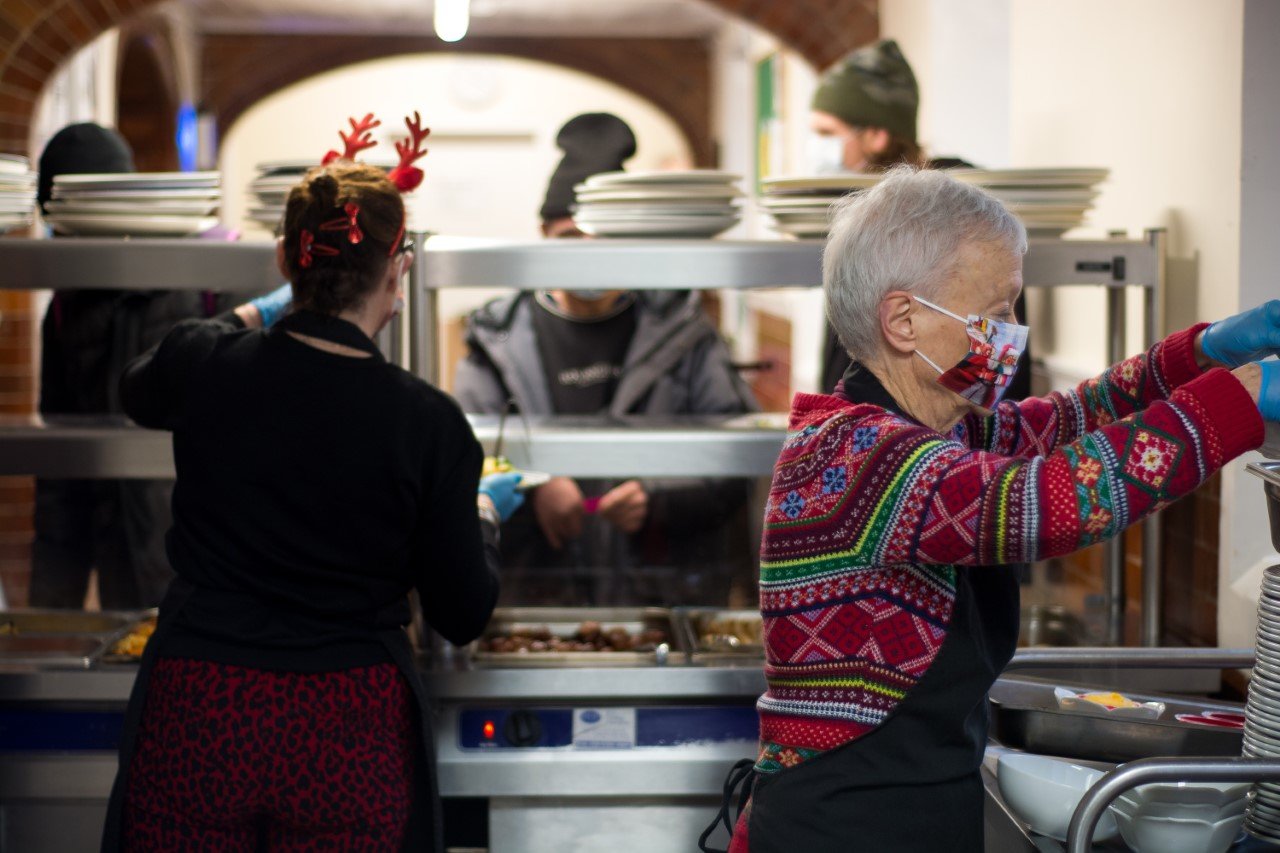
Winter is coming
This winter (after two years break due to covid health restrictions) we will once again be hosting homeless guests at Holy Spirit. The Robes night shelter is an enormously rewarding way to make a difference locally. We will be hosting Saturday night and Sunday morning for the first three weekends in December (3/4 Dec, 10/11 Dec, 17/18 Dec), and possibly the last weekend (31 December/1 January).
We are looking for volunteers to help out. Training and support are provided and there is always an experienced Team Leader on hand.

Seventeenth Sunday after Trinity
Today we celebrate the Harvest Festival. Our readings try to get to the heart of why we celebrate harvest and what makes it relevant for us.
When the people of God bring their first fruits, Deuteronomy 26:1-13, they are encouraged to recall their history: that a stranger and a foreigner was their ancestor, that they were slaves, that God liberated them and gave them a land of plenty. Having been reminded that they once had nothing and were dependent on the goodness of God and others, the people are sent home to feast, not only with their families, but with the slaves and foreigners and strangers in the land. After the festival is over, the people of God are reminded that they should be putting aside a share of their wealth every year to give to those who are most needy in their community.
In the Gospel, John 6:32-35, Jesus explains that we give not just to help others but to help ourselves: building community, giving of ourselves, sharing with others is what brings us life.
At harvest time, as we give thanks for all the gifts we enjoy, we are challenged to think about how we can live abundantly and help to build a community of plenty.
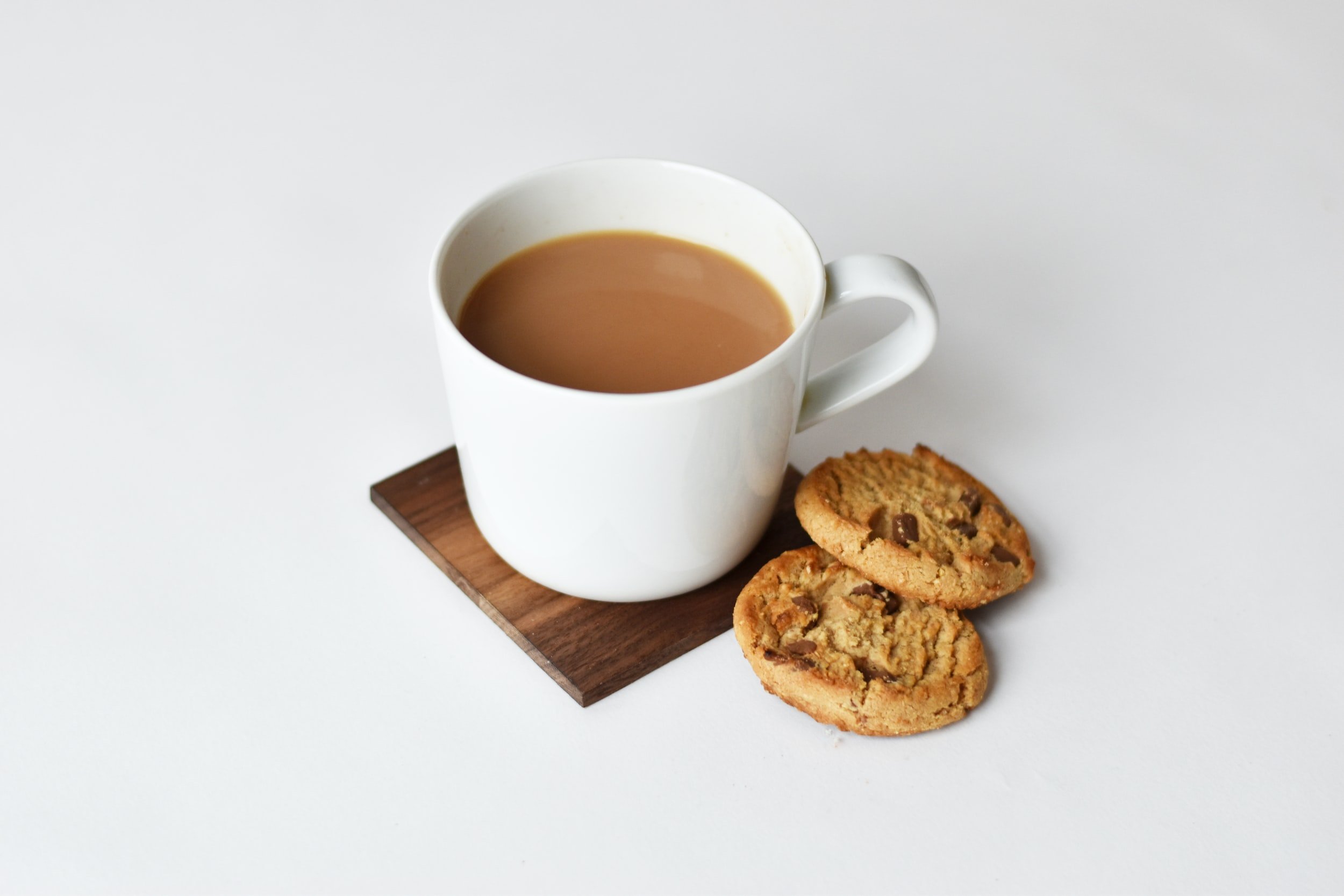
Milk and Two Sugars
After Church Tea and Coffee
We all enjoy having a coffee and chat after the Sunday service, so it would be great if we could get some help to make this happen each week. On Sunday there will be a rota at the back of the church to sign up for one week or for a regular slot, please volunteer to do whatever you can.
For anyone who has not volunteered before, Kathryn can show you where everything is and talk you through the coffee machine (v easy!)

Sixteenth Sunday after Trinity
Today we celebrate the feast of St Michael and All Angels and our readings focus on the image of the angelic ladder stretched between earth and heaven. In Genesis 28:10-17 Jacob dreams of this ladder and, although God tells him he will be with him wherever he goes, Jacob sees the ladder as fixed in this one particular holy place. Jesus though, in John 1:47-51, describes himself as the ladder between heaven and earth. In baptism we too become like Christ, christened, and we are all called, from the littlest to the greatest, to be ladders between heaven and earth, lifting others to God and bringing God’s love to them.

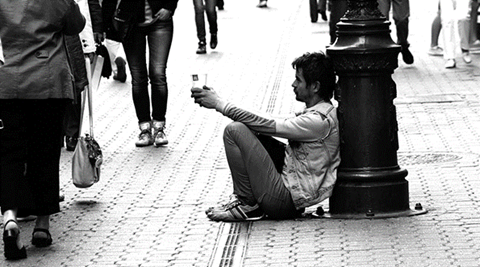
Fifteenth Sunday after Trinity
This week’s readings are both about the way in which the concerns and the pleasures of life can prevent us from connecting with one another and perceiving our innate interdependence. In Amos 6:1-7 the prophet is criticising the rich and idle. He is not, however, rejecting abundance, pleasure, enjoyment - these are good gifts from God to be enjoyed - but to their tendency to isolate us from one another. Jesus in Luke 16:19-31 gives us an example: the rich man in his story cannot even see Lazarus; he is invisible to him, although he sits at his gate daily. On earth there is a great gulf between them: not a geographical one but one caused by the difference in their stations in life. The rich man could have bridged this distance but was too preoccupied to do so. Now he is concerned for his own brothers, still not seeing that Lazarus is also his brother - still not able to reach across the distance between them.

Quiz Night is back!
Holy Spirit Clapham’s famous Quiz Night is back on Thursday 22nd September at 7:30pm in Church.

Sunday 18th September, 6.30pm
Service of Thanksgiving, Sunday 18th September, 6.30pm
A special commemoration service marking the death of her late majesty Queen Elizabeth II.
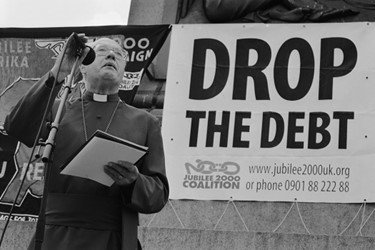
Fourteenth Sunday after Trinity
Last week Jesus was praising a shepherd who abandoned his 99 sheep to go looking for a lost one. This week he’s applauding a manager who gives away his master’s goods, (Luke 16:1-13).
At the start of the story the manager is in solidarity with the master, the one with wealth and power. By the end of the story, he is in solidarity with the debtors, those with little wealth and power (echoing the call of the prophet in our first reading, Amos 8:4-7). Irrespective of his motives, his actions ease the burden of the poor. Once he acknowledges his own insecurity, his own vulnerability, he acts to lessen the insecurity and vulnerability of others. We might (reasonably) complain that he does so by giving away what is not his in the first place. But in God’s radical economy, nothing is truly ours. All that we have - our life, our breath, our relationships, our talents - are a gift from God. If we share them, there will be enough for all God’s children.
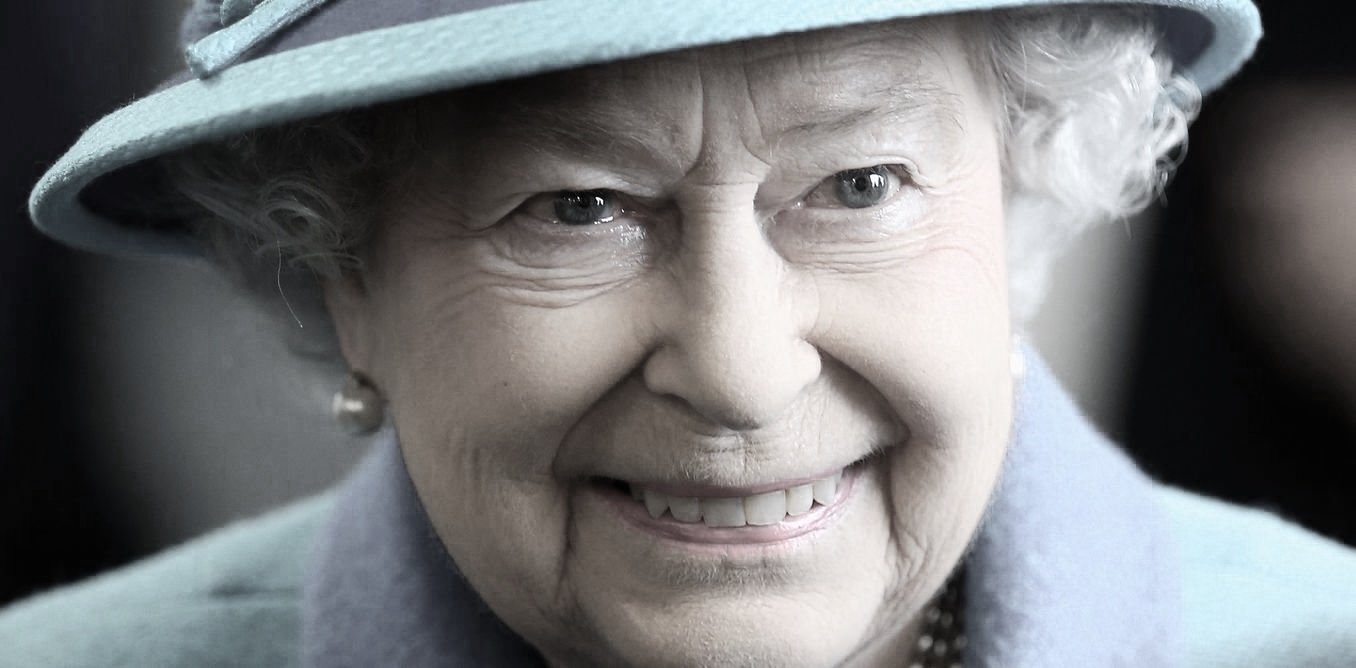
Service of Thanksgiving
Join us for a Service of Thanksgiving for HM Queen Elizabeth II, on Sunday 18th September at 6.30pm in church.
